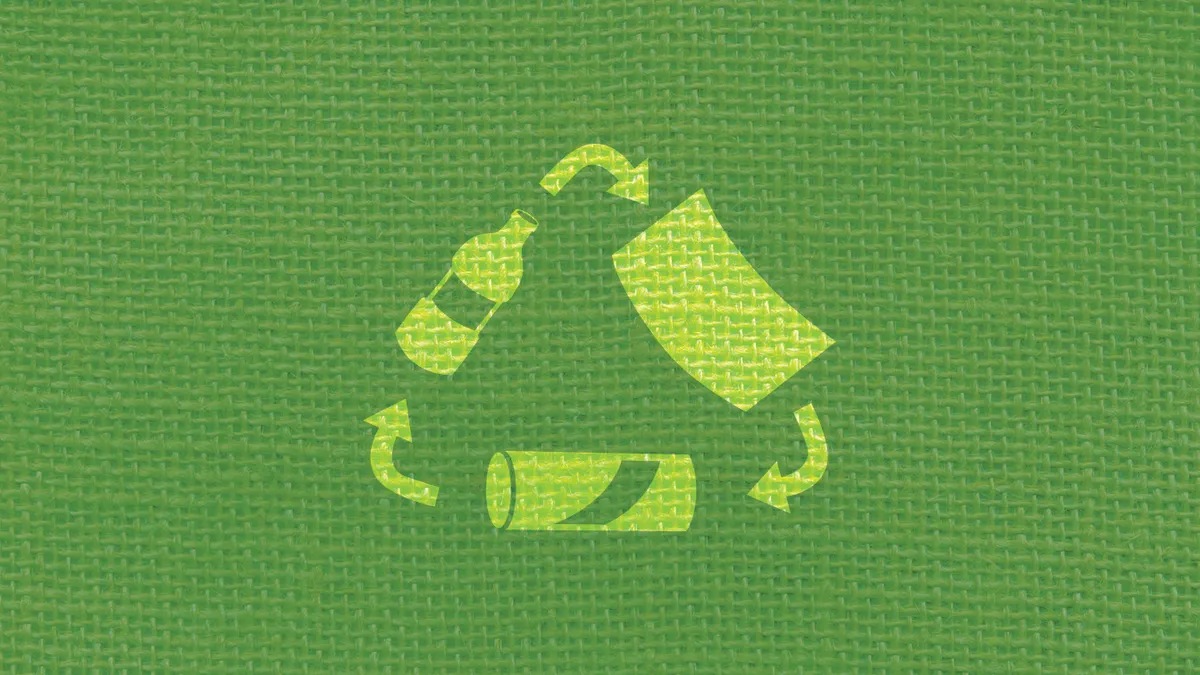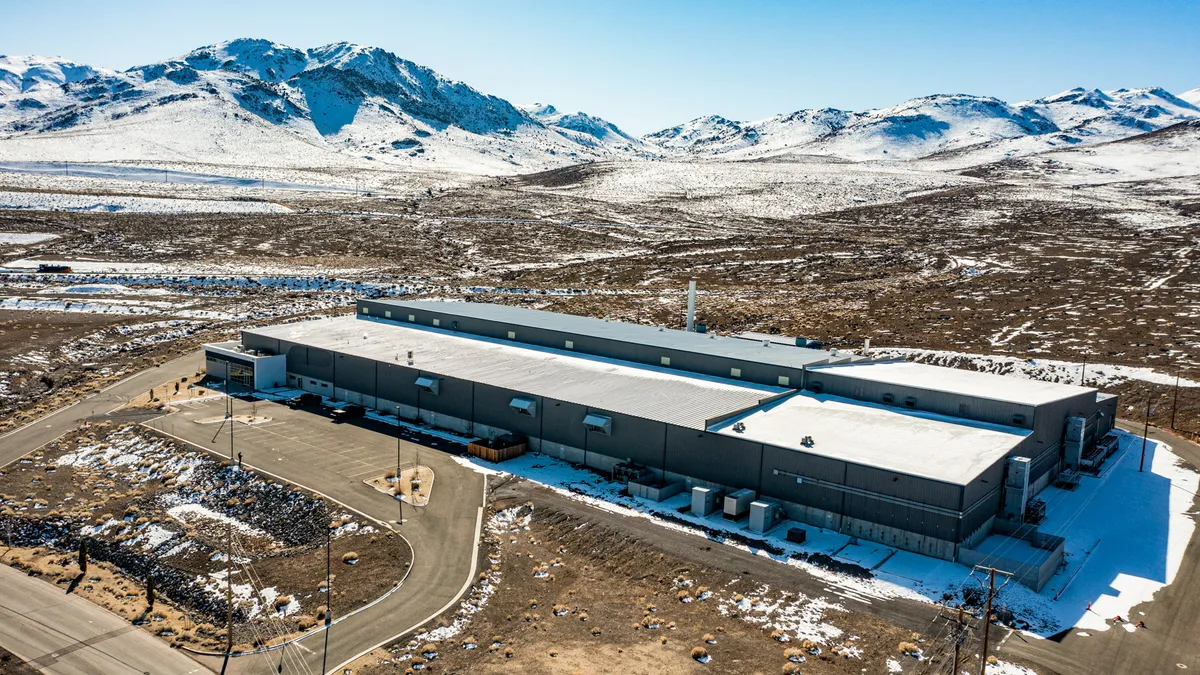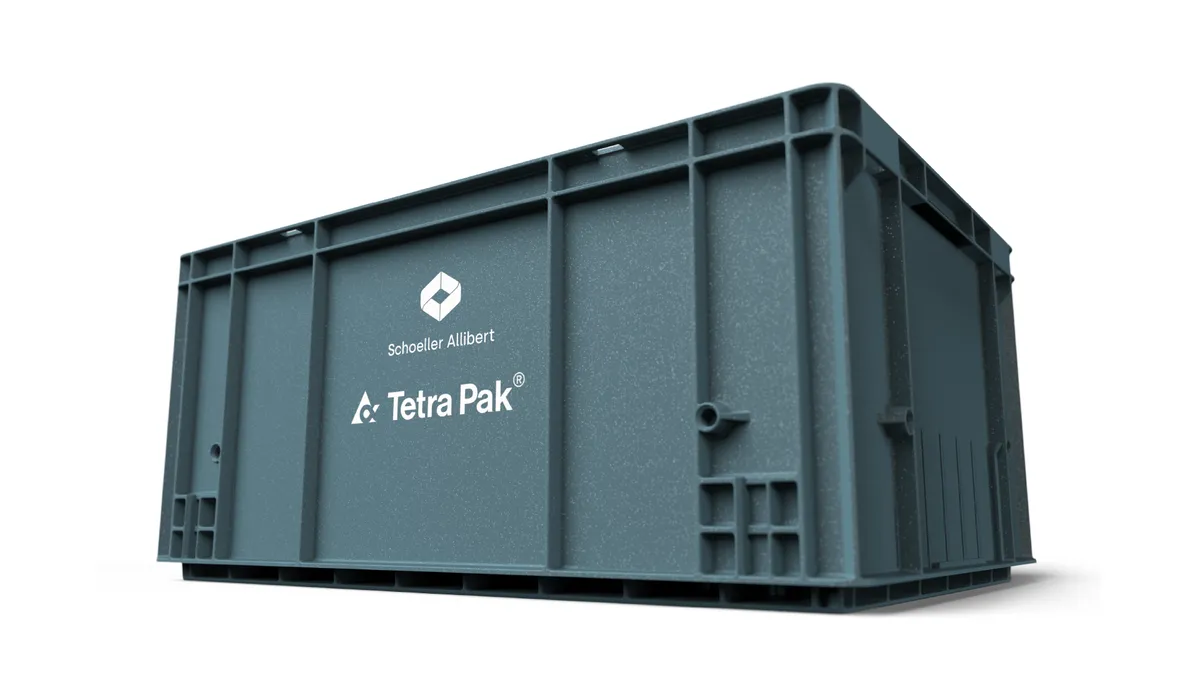The following is a contributed piece and does not reflect an editorial position by Waste Dive. Information on what that entails and how you can submit is available here.
The age-old adage that one man's trash is another's treasure couldn't be truer in today's global economy.
The effects of this concept were seen recently when China redefined the landscape by announcing new scrap import restrictions — leaving the U.S. waste and recycling industry scrambling for new buyers. Since then, we've seen how recycled commodities can maintain value as people find innovative ways to create new materials from them. If our waste is still valuable, we should re-frame our thinking about it.
While "zero waste" is not a new concept, many business owners misunderstand the approach to be "all or nothing." In reality, it can be a gradual, slow, imperfect process.
According to the Zero Waste International Association, "zero waste" is a philosophy of sending as little as possible to the landfill and ensuring waste materials are reduced, reused, recycled or repurposed. Additionally, it's crucial these materials are not incinerated and leave no discharges to land, water or air that threaten the environment or human health.
Another misconception about "zero waste" is that it's expensive to implement. While this is sometimes true, we've seen many examples of people taking steps toward the goal that resulted in a cost benefit. For example, Subaru's commitment to going "zero waste" at its U.S. plant saved between $1-2 million annually. California brewery Sierra Nevada saved over $5 million when it was able to achieve a 99.8% diversion rate.
Some believe that if a company sends something to the landfill, it should abandon the idea of being "zero waste" altogether. Unfortunately, some materials in the market today still aren't easy to divert on a wide scale; biomedical, electronic and toxic waste, for example, often require specific collection equipment and safety protocols for hauling. Such goals can instead be something to strive for, rather than an exclusive benchmark, and used as a way to guide companies toward more sustainable practices.
As a waste service provider, it is crucial to work with your customers to understand the intricacies of "zero waste." Haulers should start by helping to quantify the current amount and types of waste streams their clients are producing. After a waste audit is conducted, business owners can set realistic, measurable and achievable targets. Additionally, an audit can help customers better understand missed opportunities to reclaim profits through recycling, donation and other forms of diversion.
Empowered with the information, business owners can then begin moving toward a "zero waste" goal by setting up a plan. Every business is different, so specific initiatives should be tailored to each company or department. Internal changes could include going paperless wherever possible, educating employees on best disposal and recycling practices and implementing reusable options in place of disposable ones.
If a business is consumer-facing, public changes can be made as well. For example, ALDI announced a commitment this year to plastic packaging reduction, incorporating How2Recycle labels and reusable materials. Both Starbucks and Dunkin Donuts are have established sustainable cup commitments in their operations, and Apple recently invested further in its electronics recycling program.
When implementing a plan, it is also imperative for customers to measure the results of their initiatives throughout the process. If something isn't working, you should modify it and continue measuring to achieve the proper results.
Going "zero waste" requires a firm commitment from the whole waste ecosystem, paired with a flexibility to ditch the "all or nothing" attitude that holds back progress. Using their expertise, haulers can help customers unlock opportunities to recapture lost profits and reduce costs. Setting clear goals will ensure that you're able to continue the momentum over time, working to achieve the best results for your customers and the environment.
Helping your clients with this process can shift your relationship to that of a solutions provider. This will enable you to better understand the services a client needs — which, in turn, will allow you to create new avenues of revenue for your own operations. Charging the client for a waste audit, strategic consulting or adding specialized hauling services are all great ways to help the them, our environment and your bottom line.
Matthew S. Hollis is the co-founder and president of Elytus, a third-party administrator that helps clients streamline waste and recycling operations while becoming more sustainable in the process. As a part of its #WasteNothing motto, Elytus believes in saving time, money and the environment.





















